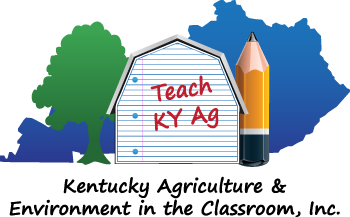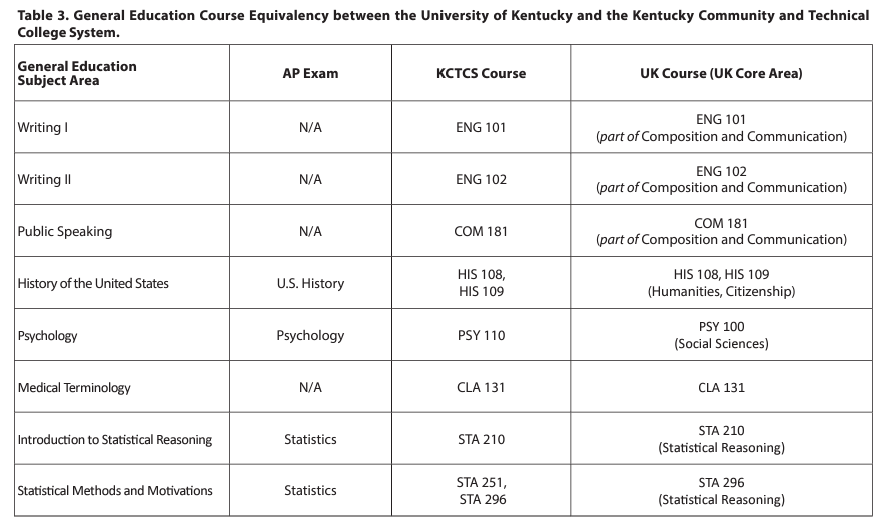So You Want to Be a Veterinarian? Start Preparing in High School!
From UK Cooperative Extension Service Publication ASC-262
By Fernanda Camargo, Ann Leed, Colette Tebeau, Animal and Food Sciences
Many kids dream about becoming a veterinarian when they grow up. Those who continue to pursue this career at the start of high school can complete some preparatory classes and activities to make this dream become a reality.
A starting point for those interested in becoming veterinarians should be talking with veterinarians, veterinary students, and veterinary technicians to get a more realistic picture of the profession. Veterinary medicine is a big personal, academic, and f inancial commitment. A passion for animals is a good foundation, however strong academics, communication, and problem-solving skills are required to become a successful veterinarian.
Animal lovers already have compassion for animals, but a veterinarian needs to have compassion for people, too. They need to enjoy interacting with clients and have strong communication skills, as owners need to understand the treatment plan. Veterinarians also must be willing to advise clients on decisions that will have significant, often negative, financial and emotional impact on family and/or business.
Still interested in becoming a veterinarian? This publication will provide information on appropriate high school coursework and outline experiences and skills to develop prior to beginning college.
Coursework Introduction and Pre-Vet Requirements
Pre-veterinary students are required to complete a rigorous curriculum of science-heavy coursework prior to applying to veterinary school. While not mandatory, students are encouraged to complete a four-year bachelor’s degree at an accredited university. Pre-veterinary students may obtain a degree in any subject, however majors such as animal sciences, equine science, agricultural biotechnology, and biology align with pre-veterinary required coursework. Students pursuing these degrees can concurrently complete both degree and veterinary school prerequisites resulting in a more streamlined college experience. While the prerequisites vary slightly by school, most veterinary schools in the United States will have mathematics, biology, chemistry, English, and physics as requirements.
A comprehensive list of veterinary school required courses can be found here: https://www.aavmc.org/assets/Site_18/files/VMCAS/VMCASprereqchart.pdf
Being a motivated high school student and taking advantage of advanced coursework can set students up for success in college and beyond. Benefits of taking these classes include preparation for rigorous coursework and the potential to bypass required classes when in college. High schools frequently offer students the opportunity to complete Advanced Placement (AP), International Baccalaureate (IB), and/or college dual enrollment coursework. Please keep in mind that grades obtained in dual enrollment classes will be factored into veterinary school application GPAs and it is vital for students to do well in ALL high school classes.
While not all high schools provide dual enrollment, AP and/or IB coursework, students can still prepare for the rigor of pre-veterinary programming using free online resources such as Khan Academy, Crash Course, and/or Coursera (see resource list below).
Students are encouraged to participate in college visits and work with academic/pre-veterinary advisors prior to taking advanced coursework, as university, major and pre-veterinary requirements can differ by school.
Mathematics
Math is one of, if not the most, important subject needed to prepare for success in a college pre-veterinary curriculum. It is recommended that high school students take math every year of high school, finishing their senior year in the highest math course possible prior to enrollment in college. While this advanced level math class may not be required for high school graduation, it will help set the student up for success in college level math and courses that have a math foundation. Successful completion of an AP Calculus class is recommended, if available. Another option is enrollment in a dual credit college algebra or calculus course.
Advanced college level math is often required for veterinary school admission. Additionally, math is the foundation of biology, genetics, chemistry, physics, statistics, and nutrition along with other required classes for veterinary school admission. Most colleges and universities require students to complete college algebra prior to enrollment in chemistry and physics. Should students not be prepared to take algebra in college, remedial math classes may be required, which means a delay in graduation and admittance into veterinary school is expected. Proper math preparation at the high school level will set future veterinarians up for success in their academic journey.
Sciences
Science courses are the primary focus of veterinary school requirements and are frequently emphasized in GPA calculations. For admission into veterinary school, five semesters of college chemistry and four semesters of college biology are typically required. College chemistry courses are often the most challenging for students to successfully complete, however, appropriate high school preparation can help alleviate some of the difficult aspects of the material. More specifically, being exposed to, and successfully completing science classes while in high school, will prepare students for the more rigorous science classes they will take in college.
Although science classes offered by high schools vary widely by subject and rigor, all can help students pursue the pre-veterinary pathway through early exposure to demanding topics. Specifically, courses that focus on chemistry, biology and physics will be helpful. Students should take science classes every year of high school to better prepare themselves. Moreover, students can earn credit for general chemistry and general biology via AP and/or IB examinations, or enrollment via a community college or four-year institution. However, advanced chemistry (such as organic and/or biochemistry) and advanced biology (such as genetics, microbiology and/or cell biology) should be taken at a four-year institution. Students who are able to take dual enrollment classes should enroll in science classes designed for science majors.
General Education
Courses While not an emphasized area of study, general education coursework (such as English, social sciences, humanities, etc.) is required by all veterinary schools. Completing general education coursework via AP, IB, and/or dual enrollment may allow students to bypass classes once enrolled in college. This creates greater flexibility in class scheduling and the ability to focus on science courses emphasized by veterinary schools. Additionally, most universities require social sciences, humanities, foreign language, English/writing, and speech courses to be taken regardless of major. Completing these courses while in high school often gives students credit for both degree and pre-veterinary requirements. However, specific general education requirements vary depending on institution and major; students should communicate with advisors at their university of choice for additional information. Even if taking these classes in high school does not allow for a bypass while in college, it still lays a foundation for upper-level learning.
Grades
It is important to be academically successful in high school. This allows students to progress appropriately through pre-veterinary coursework as an undergraduate student. College GPAs of 3.5 and above are more competitive and result in a higher chance of being accepted into veterinary school. As mentioned previously dual enrollment courses are factored into college GPAs.
Veterinary Clinical Experience
One of the most important experience categories is veterinary experience hours. These hours are spent under the direct supervision of a licensed veterinarian. Shadowing, volunteering, internships, and paid experience with a licensed veterinarian are accepted. While this is not vital during high school, it will become imperative in college. Moreover, veterinary schools look for candidates that have experience in multiple industries, such as livestock, horses, small animals, exotics, etc. Competitive applicants to veterinary schools often have over 1,000 hours of veterinary experience.
Animal Experience
This experience category includes 4-H animal projects, horse farms, livestock farms, animal shelters, zoos, kennel work, racetracks, horseback riding experience, etc. These activities allow students to gain hands-on experience working with animals of different species and is a different category than veterinary experience.
Other Experiences
Other worthy experiences include research, non-animal related work that shows customer service, leadership, recordkeeping, and extracurricular involvement. It is recommended that students keep a journal of all activities, including dates, time spent, types of activities, supervisors, and so forth.
Interpersonal Skills
Interpersonal and communication skills, including oral, written, and visual, are extremely important for the success of any professional. They are even more important for professionals in the health field, as they must explain diseases, treatments, and expectations while using terminology unknown to the client. Veterinary admissions often assess interpersonal skills via essays, entry exams, letters of intent, letters of recommendation, and interviews.
Developing these skills is vital to a competitive veterinary school application and overall success in the veterinary profession. Therefore, acquiring these multi-modal communication skills is critical. Students can join 4-H or FFA communications clubs, high school debate teams, etc. Students should develop skills in teamwork, time management, dependability, professionalism, and effective communication.
Conclusion
Becoming a veterinarian requires dedication and hard work but is a fulfilling profession for those who complete a doctor of veterinary medicine degree. High school students can prepare themselves for the rigor of this pathway by completing advanced coursework, obtaining relevant experience, and developing their interpersonal skills.
Becoming a veterinarian is one of many career options for those that have a passion for animals. Other related animal pathways include animal science, arts, agricultural engineering, equine science, research, zoo or marine management, photography, pharmaceuticals, academia, to name a few. For additional information students should reach out to university academic advisors and/or career centers.
Resources
Academic Resources
Khan Academy: https://www.khanacademy.org/
Crash Course: https://thecrashcourse.com/
Coursera: http://coursera.org
Pre-veterinary Resources
Veterinary School Directory: https://applytovetschool.org
AAVMC “Becoming a Veterinarian”: https://www.aavmc.org/becoming-a-veterinarian/
University of Kentucky Specific Resources
Pre-veterinary Information: http://www.uky.edu/Pre-veterinary
Schedule a Visit to the Martin-Gatton College of Agriculture, Food and Environment: http://students.ca.uky.edu/campusvisit
Transfer Equivalency Database:
College Credit by Examination (AP, IB, CLEP): https://registrar.uky.edu/credit-examination



